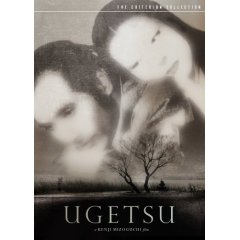
Is it me, or is classic French New Wave cinema about finding innovative way to film losers? Any way, I recently watched two new wave classics, the 400 Blows (1959) by Francois Truffaut's and Breathless (1960) by Jean Luc Godard. Both movies are about delinquency, one at a childhood age and another at an adult age. Both movies depict the characters as living in an amoral world of confusion led by selfish drives. Both movies are about sticking it to the "man" on impulse. They're both good movies worth seeing, though I think age has taken away some of its groundbreaking appeal.
The 400 Blows follows the story of a young boy named Antoine Dionel who is the cinematic stand in for the director. Based on the director's own life, the movie depicts a boy who hates school and has a fractured home life. He shows an aptitude for doing the wrong thing and even his pure attempts at performing good deeds often turn on him. The movie gives a full, humanistic view of this character (well, who's going to make an autobiographical film and make themselves look like a jerk) and a heartfelt sensitivity comes across that is rare. The final shot of the film is classic and makes the movie worth seeing.

Breathless I found lived up to its reputation for greatness in its filmmaking style but also was somewhat bored by it. The story of a petty criminal who kills a policeman and becomes the laziest fugitive ever seemed a little silly. That the criminal would choose this time to start a relationship seems bizarre. But the movie sells these ideas well by depicting the lead character as a jaded fool who thinks he's clever. The camerawork is stunning, lots of shaky hand held camerawork and jumpcuts. It gives the story an immediacy and energy the movie desperately needs. The idea of two soulless searchers fumbling in their search for meaning without pontificating on it is surprisingly moving. As good as it was though, this movie really didn't grab me and I found myself favoring the 1983 remake with Richard Gere.
The 1983 version is a monumental piece of crap which amazes the viewer with how a group of people can be so committed to making a horrible movie. Richard Gere plays his character like a 13 year old, hooked on the music of Jerry Lee Lewis and reading Silver Surfer comic books. Poor ex model Valerie Kapiersky is terribly miscast as...well, she just shouldn't be allowed to act. In fact, I think she felt humiliated and quit acting after this movie came out. When gratuitous nudity is a movie's strong point, you know it can't be good. But, like witnessing a car accident, you end up watching just to see how bad it can get. It's also fun to compare the two movies.
On the non new wave front, I recently watched Tales of Ugetsu (1953). A Japanese film about greed in 16th Century Japan. Two brothers attempt to cash in on selling their pottery just before the invasion of an enemy force. The lengths and costs of their greed leads to disgrace and death (mainly for the women that love them). The first half of the movie is realistic and effective, a completely believable portrayal of greed with all of its negativity and appeal. I really enjoyed it until the second half, which becomes a ghost story.
Movies that switch tone in the middle often lose me. Sometimes, the trick can work such as David Lynch's Muholland Drive (2001). That movie stuck with me as a first class mind trip. But in other movies, I find it annoying., It's like saying, "remember the last hour you spent? Forget all that, cause it doesn't matter anyway." That's how I felt about Ugetsu. The ghost story does find another angle to drive it's point home (Dude, don't be greedy!) but the first half's realistic approach was so engaging I was sad to see it go.

No comments:
Post a Comment